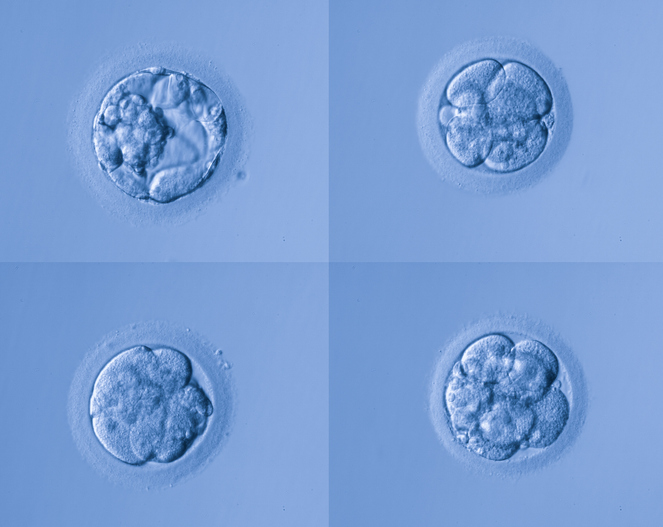.png)
.png)
At Cofertility, we’re big believers in destigmatizing mental health conditions — whether it’s depression, anxiety, ADHD, substance abuse, or anything else. If you’re treating or working through a mental health condition, we support you and your strength, and we know that recognizing a mental health condition can actually be pretty empowering. But if you are thinking about donating your eggs, there are a few considerations you should take into account before starting the process. Read on for everything you need to know about egg donation if you have a mental health condition.
Do antidepressants or anti-anxiety medications impact cycle outcomes?
If you’re currently on medication for depression or anxiety, the short answer is — most likely — no. Most commonly used SSRI antidepressants and anti-anxiety medications (benzodiazepines) have not been shown to have clear long-term effects upon egg freezing cycles. That includes both egg quantity and quality, as well as hormone levels and the ability to ovulate. There is concern that the use of SSRIs and other antidepressants during fertility treatments could interfere with the effectiveness of hormonal medications used in treatments, potentially by altering the body's response to these hormones or affecting hormone levels directly. This interaction could theoretically exacerbate symptoms of depression due to the added stress of fertility treatments and the hormonal fluctuations they cause
If you’re planning on freezing your eggs — regardless of whether you’re also donating any — you’ll need to provide your doctor’s office with your current medications. As for official guidance, the CDC and the American Society for Reproductive Medicine (ASRM) consider antidepressant usage safe during fertility treatments. That said, you can never be too proactive, so we definitely recommend bringing this question up with your doctor and discussing your medication, specifically.
When it comes to egg donation, however, things get a little bit more complicated. The ASRM (yes, the same organization that stated antidepressants are safe to take during fertility treatments) considers the current use of SSRIs or other antidepressants a “relative exclusion criteria”' for egg donation. So, not an automatic disqualification, but something that should be reviewed by the doctor on a case-by-case basis. All clinics may view this guidance differently, and different intended parents may feel differently about the issue. Again, we recommend discussing your usage of these medications with your fertility clinic and your psychiatrist. Two people may take the same medication for very different reasons, and context is important here.
Cofertility’s eligibility decisions are rooted in adherence to ASRM guidelines, which fertility clinics follow within comprehensive screenings. Many clinics may have their own eligibility policies on top of the guidelines dictated by ASRM – we ultimately defer to the discretion of the clinic and overseeing physician.
Risks of inheritability — and what they mean for your cycle
Even though the usage of SSRIs or antidepressants may not impact your egg freezing cycle outcome or automatically disqualify you from egg donation, it’s still important to understand the inheritability risk of your mental health condition to potential future offspring. When you are undergoing medical screening for egg donation in a specific match, it involves more than just meeting the general requirements for egg donation. This process also includes eligibility to donate for a particular family. Since sperm contributes the other half of the genetic material in an embryo, it is essential to evaluate the genetic carrier status of both you, the egg donor, and the sperm provider collectively.
Depending on your condition, your reproductive endocrinologist (REI, otherwise known as your fertility doctor) may ask your psychiatrist if you are able to safely go off of your medication if needed. And during your psychological evaluation, the psychiatrist will want to verify that you aren’t under excessive stress or experiencing any instability when providing consent.
If, based on your condition and psychiatric history, you are still cleared for egg donation, it’s likely that you will be matched with intended parents who don’t maintain a shared history of your condition or related ones. This will be discussed with a genetic counselor as part of the process to mitigate risk of inheritability to future offspring as a result of your egg donation.
What criteria is required for egg donation?
In order to mitigate the risk of inheritability of mental health issues to offspring, the ASRM has the following criteria in place that would deem someone ineligible to donate:
- Presence of significant psychopathology
- Positive family history of psychiatric disorders
- Current use of psychoactive medication
- Substance use disorders
- Two or more first-degree relatives with substance use disorders
- History of emotional, sexual, or physical abuse without professional treatment
- Excessive stress
- Relationship instability
- Inadequate cognitive functioning to support informed consent
- High-risk sexual practices
- Risks/concerns for the donor for future contact with donor-conceived offspring
Each of these factors would be evaluated as part of your initial egg donation application and/or your psychological screening later in the process.
What’s the rationale for psychological screening for egg donation?
As part of the egg donation application process, mental health screening checkpoints exist at two key points:
- The initial (written) application, including a detailed medical history screening, as some conditions are more heritable than others
- The psychological evaluation that takes place once you’ve already passed bloodwork and physical evaluation portions of the process
These screenings take place for several reasons, but the two primary ones are egg donation preparedness and reducing inheritable risks of the mental health conditions to any resulting offspring.
Preparedness for egg donation
Egg donation isn’t *not* a big deal. You’re helping grow another family who otherwise can’t conceive — and, if you’re donating your eggs through Cofertility’s Split program, you’re also freezing half of the eggs retrieved for your own fertility future. This process is definitely manageable (and actually, empowering?), but someone should only go through with it if they are truly one-hundred-and-fifty-percent ready.
There are many emotional implications involved with egg donation, both for you and the intended parents. Implications like, what degree of communication with intended parents or any future offspring are you comfortable with, if any? We review every single Split program application to ensure that every member feels not only prepared, but excited, about the prospect of matching with another family and donating half of their retrieved eggs.
Reducing inheritable risks to offspring
The second, more clinical reason for psychological screening is ultimately to reduce the risk of any potential future offspring inheriting any serious mental health issues. We (and maybe you, if you’re reading this) know first-hand the struggles mental health conditions can bring, not only to the affected individual but also their loved ones. Depending on the severity of the conditions, it’s important to get ahead of any potential risks to families that may be created as a result of egg donation.
The net-net
Ultimately, if you have a mental health condition, your likelihood of getting approved for egg donation is totally case-by-case. It depends on the specific condition, the severity, medication (if applicable), possible input from your psychologist/psychiatrist, and the evaluation of your readiness for donation. Checks and balances and standardizations within the process exist to ensure you (a) feel great about consenting to the procedure, and (b) that there is not a high risk of passing along a severe condition to potential offspring.
Egg donation with Cofertility
If you’re curious to learn more about egg donation through Cofertility, take our quiz here to see if you may qualify for our Split program. Through Split, donors are supported throughout the process and get to keep half of the eggs retrieved for their own future use.
With our innovative approach, you’ll also get:
- Free storage of your own eggs in cryopreservation for up to 10 years
- Coverage of all medical costs throughout the egg freezing and donation processes
- Connection to the Cofertility community for support all along the way (and after, too!)
- The ability to work with intended parents to decide together what your relationship will look like
We hope to support you on your egg freezing and donation journey!










